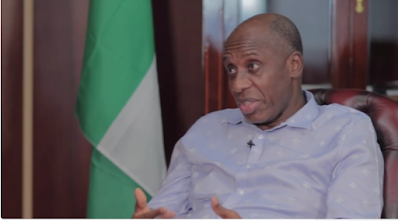Amaechi Quits APC, Says He Never Believed Tinubu Could Lead Nigeria
Former Minister of Transportation and two-term Rivers State Governor, Rotimi Amaechi, has announced his resignation from the All Progressives Congress (APC), delivering a scathing critique of President Bola Tinubu’s leadership. Speaking at the unveiling of the African Democratic Congress (ADC) interim leadership in Abuja on Wednesday, July 2, 2025, Amaechi declared that he never believed Tinubu had the capacity to govern Nigeria, citing the country’s worsening economic and security challenges.
Amaechi, who formally left the APC on Tuesday night, accused the ruling party and the Independent National Electoral Commission (INEC) of colluding to manipulate future elections. “Nigeria is completely destroyed. People can’t eat. There’s no money to buy food. Everything is gone. Inflation is at its peak,” he said, highlighting the naira’s depreciation from around ₦460 to ₦1,580 against the dollar, a more than 100% increase since Tinubu’s administration began. He contrasted this with the tenure of former President Muhammadu Buhari, under whom he served, noting that many Nigerians now long for Buhari’s return due to relatively better economic conditions.
The former governor, who ran against Tinubu in the APC’s 2022 presidential primaries, revealed he had distanced himself from the party long before his resignation. “I never attended one APC meeting. The last time they invited me, I warned them in writing not to invite me again. I was surprised I wasn’t expelled,” Amaechi said, adding, “You can’t be in a club where the majority are stealing and say nothing.” His remarks underscored his disillusionment with the APC’s governance and internal practices.
Amaechi’s defection to the ADC, which he described as a “movement” to empower Nigerians to reclaim their government, aligns him with other opposition figures like former Senate President David Mark and former Governor Rauf Aregbesola. The ADC’s unveiling as the opposition coalition platform for the 2027 elections signals a broader push to challenge Tinubu’s administration. Amaechi emphasized that his move was not merely about changing parties but about restructuring Nigeria to address systemic issues like poverty and electoral integrity.
Public reactions on X reflect divided sentiments. @Naija_PR quoted Amaechi’s claim that Nigerians want Buhari back, citing economic hardships under Tinubu, while @PO_GrassRootM hailed his resignation as a bold stand against a “destroyed” Nigeria. Conversely, @LegendaryJoe dismissed Amaechi’s coalition efforts, noting Tinubu’s electoral success in Rivers State despite Amaechi’s lack of support.
Amaechi’s history of friction with Tinubu dates back to his 2022 primary loss, which he alleged was marred by financial inducements. In May 2025, he publicly stated he told Tinubu in Yola that he would neither vote for nor work for him, citing concerns over leadership capacity. These sentiments were echoed at his 60th birthday lecture, where he criticized Nigeria’s political culture of ethnic and religious voting.
The APC has faced backlash over Amaechi’s exit, with the APC Media Network in February 2025 accusing him of hypocrisy, given his 24-year political career, and urging him to retract his “incendiary” remarks. Ohanaeze Ndigbo also condemned Amaechi earlier this year for allegedly inciting unrest, distancing the Igbo community from his rhetoric. Despite these criticisms, Amaechi remains defiant, calling for a movement to address Nigeria’s “total collapse.”
As the 2027 elections approach, Amaechi’s defection and outspoken criticism signal a growing opposition momentum, with the ADC positioning itself as a viable alternative to the APC’s dominance.
